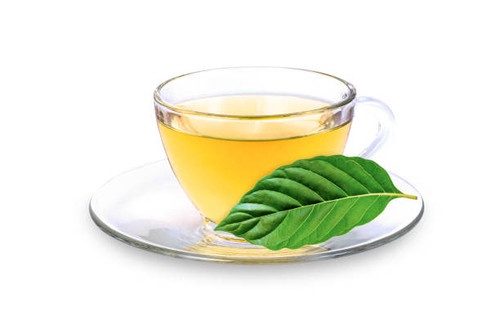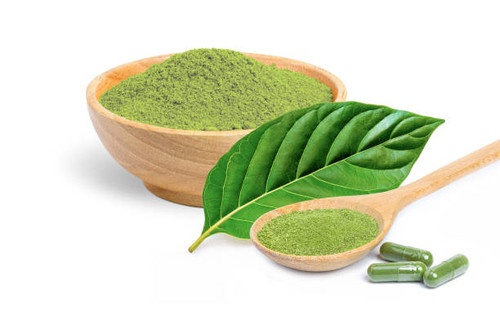Kratom has been utilized for therapeutic reasons for hundreds of years by people worldwide. They have used it to relieve the problems of stress, anxiety, gastrointestinal issues, depression, and Opiate withdrawal symptoms.
No adverse effects of Kratom tea for sale have been discovered yet because there is nothing or they are fragile, or probably because there is insufficient study information accessible on Kratom to make such conclusions.
This might be concerning for newcomers hopping from one blog to another and figuring out whether they can safely use it.
According to this blog post, you will learn if Kratom is beneficial for you, what the adverse aspects of Kratom are, and whether it is harmful to your heart or not.
Kratom: What Is It and How Does It Function?
Trees of the Kratom family may be found growing naturally in Indonesia, Thailand, and Borneo all across Southeast Asia. Because of the high concentration of mitragynine in the plant, the scientific term Mitragyna Speciosa refers to the species. So many qualities and advantages of it may be attributed to mitragynine and other alkaloids, including 7-OHM.
These kratom alkaloids use a similar mechanism of action to opioids to block the mu and delta-opioid receptors in your brain. Many ailments may be treated with this herb, including anxiety, pain, and exhaustion. In addition, one of its most common uses is as a treatment for the signs of opiate withdrawal.
Understanding Kratom’s mechanism of action
Mitragynine and 7-hydroxy mitragynine are two of Kratom’s active components. These alkaloids operate on the Opiate receptors found in the brain. They mostly affect the mu and delta opiate receptors in it. Cellular alterations and intercellular signaling are induced due to signal transmission from these receptors.
As a consequence, one can feel energized and stimulated. Endorphins and dynorphins, which are released when the body experiences pain, aid in the reduction of that discomfort. When dopamine levels are elevated and sustained, euphoria and self-confidence are boosted. Serotonin is a neurotransmitter that helps alleviate stress, anxiety, and sadness.
Most strains of Kratom are stimulants at low dosages. At larger dosages, the strains have been proven to have sedative properties.
The Effects of Kratom on the Heart
Is kratom harmful to your cardiovascular system? The heart is generally unaffected by the use of it. There is no evidence indicating that kratom may harm your heart or cardiovascular system. The heart and circulatory system are not at risk if you consume it in moderation and are a healthy person. To ensure that it doesn’t harm your heart, you need to take a few measures before ingesting it.
A cardiac problem, or medicine that might impact your heart, should be considered before using kratom. The impacts of this herb may be amplified to harmful levels if taken in high doses or combined with other drugs (including prescription) that affect the heart rate. You may also be affected by the sort of cardiac issue you have and the medicine you’re taking to treat it.
Be aware that kratom might impact your heart rate in either a refreshing or a sedative way before you start taking it. As a result, if you have a heart issue, you need to know how it works and the consequences of its many strains. Another consideration before using kratom is that anecdotal data suggests that it might boost your blood pressure.
The Energetic Effects of Kratom and its Effects on the Heart
People with pre-existing cardiac issues may worry, “Is kratom harmful for your heart?” due to its stimulating effects. And yes, asking questions and exercising caution are sensible precautions to take before using it.
The stimulating effects of kratom may be likened to the effects of a cup of coffee in lesser amounts. Remember that the impacts of this herb are not only dependent on dose; the kind of kratom used may also influence the effects. For example, certain types of kratom have stimulant properties, while others are more tranquil.
Mental rather than bodily stimulating effects of kratom. Despite this, those who have a cardiac issue and whose heart rate is impacted by coffee should consider that it may also raise their heart rate. Its stimulating effects may also raise the heart rate and affect the cardiovascular system, making it a potentially harmful substance.
People with pre-existing cardiac conditions must avoid stimulant strains and exercise extreme caution while using kratom, even if the effects on heart rate are minimal.
Some people say kratom boosts their blood pressure even when utilizing soothing strains. As a result, those with high blood pressure should be aware that it may cause a slight increase in their blood pressure.
The Sedative Effects of Kratom and Its Effect on the Heart
A high heart rate is a common sign of a cardiac issue. However, the polar opposite may also occur, and a slow heart rate might cause cardiovascular complications. Also, kratom has soothing properties.
Relaxing and tranquil effects of kratom might be experienced at greater dosages. While kratom and other sedatives calm your muscles and lower your heart rate and breathing rate. If you have an arrhythmia or are prone to bradycardia (a slower-than-normal heart rate), taking a large dosage, particularly a tranquil color strain like red kratom, may cause your heart rate to drop significantly. In addition, certain people, particularly those with apnea or hypopnea, may find it challenging to cope with a reduced breathing rate.
Remember that kratom may exacerbate the effects of drugs like opioid sedatives that usually induce a slower heart rate or breathing rate, so mixing them may not be safe.
Conclusion
Kratom has assisted thousands of individuals in overcoming opiate withdrawal, easing stress, anxiety, despair, and much more to manage chronic pain. It has a calming effect on the body, and its effect on the heart varies on the individual’s health.
It’s advised to avoid using it if you already have heart problems, such as cardiac myopathy, cardiac hypertrophy, or even hypertension. Kratom acts as an agonist on the heart’s ideal receptors.


